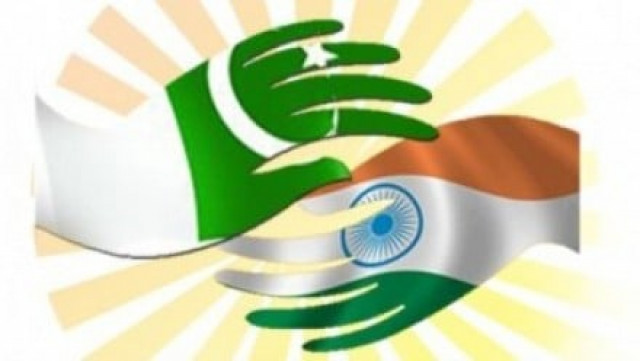Major issues between old rivals India and Pakistan
The two South Asian nations have fought three wars since they became free nations in 1947.

The two South Asian nations have fought three wars since they became free nations in 1947, and remain deeply distrustful of each other.
Following are some of the main disputes between them:
Security
For India, security is the top issue, brought into stark relief by three near simultaneous bomb blasts in Mumbai this month that killed at least 23 people and which analysts suspect was the handiwork of a domestic militant group.
(Read: "Mumbai blasts: Over 20 killed, 141 injured")
Until this year, India had refused to resume peace talks until Islamabad took action against Pakistan-based militants and brought to justice those behind the 2008 Mumbai attacks.
India has not linked the latest attacks to Pakistan, but suspicions linger that Pakistan's powerful ISI spy agency backs militant groups operating against India.
Testimony from Pakistani-American David Headley, who scouted targets for the militants who staged the 2008 Mumbai attacks, says some ISI officers were connected to the plot.
(Read: "Headley's confessions: Mumbai plotter no longer proud of attacks")
Pakistan denies India's accusations.
For its part, Pakistan accuses India of backing separatists in its Baluchistan province and providing weapons and funding to Pakistan Taliban groups, charges India denies.
Afghanistan
Afghanistan is a major source of friction. The two countries have long competed for influence there and Pakistan is deeply suspicious of a rise in India's presence there since the fall of the Taliban government in 2001.
Pakistan accuses India of using Afghanistan as a base to create problems inside Pakistan, including backing separatists in Baluchistan province. India denies the accusations, saying its $2 billion aid is focused on development.
India is worried that negotiations with the Taliban and the US pullout would give Pakistan an upper hand in Afghanistan and offer anti-Indian militants a base.
(Read: "Afghan pullout: It’ll not be a complete withdrawal, says UK envoy")
This rivalry is complicating US-led efforts to end an intensifying Taliban insurgency and bring stability to Afghanistan almost 10 years after the Taliban were ousted.
The US drawdown has also pushed Washington to work harder in getting India and Pakistan to normalise ties.
Kashmir
The divided, mostly Muslim Himalayan region of Kashmir is at the heart of hostility between the neighbours and was the cause of two of their three wars since independence from Britain in 1947. The third was over the founding of Bangladesh.
Separatists began an insurgency against Indian rule in 1989. Since then tens of thousands of people have been killed. India accuses Pakistan of supplying militants with arms and funds, while Islamabad says its role is limited to moral support.
A breakdown in talks could set off a repeat of last summer's violent anti-government protests in India-controlled Kashmir that killed at least 110 people.
Trade and visas
Both countries want to boost trade, particularly important for Pakistan's weak economy, but Islamabad has yet to grant India a "most favoured nation" trade status over concerns its market will be flooded with cheap Indian goods.
(Read: "Pakistan to grant MFN status to India ... eventually")
There is hope that Wednesday's talks will make progress on easing cross-border travel mostly in the Kashmir region.
Water
The two countries disagree over use of the water flowing down rivers that rise in Indian Kashmir and run into the Indus river basin in Pakistan.
Pakistan says India is unfairly diverting water with the upstream construction of barrages and dams. India denies the charge.
No immediate progress is expected here.
Siachen
Indian and Pakistani forces have faced off in mountains above the Siachen glacier in the Karakoram range, the world's highest battlefield, since 1984.
The two sides have been trying to find a solution that would allow them to withdraw troops, but India says it is unwilling to bring its forces down until Pakistan officially authenticates the positions they hold.
Pakistan has said it is willing to do so but on the condition that it is not a final endorsement of India's claim over the glacier, one source of meltwater for Pakistan's rivers.
A meeting of defence secretaries of the two nations about the glacier in May was inconclusive and showed that even less controversial issues remain difficult to tackle.
(Read: "Lingering dispute: India, Pakistan open Siachen talks today")



















COMMENTS
Comments are moderated and generally will be posted if they are on-topic and not abusive.
For more information, please see our Comments FAQ